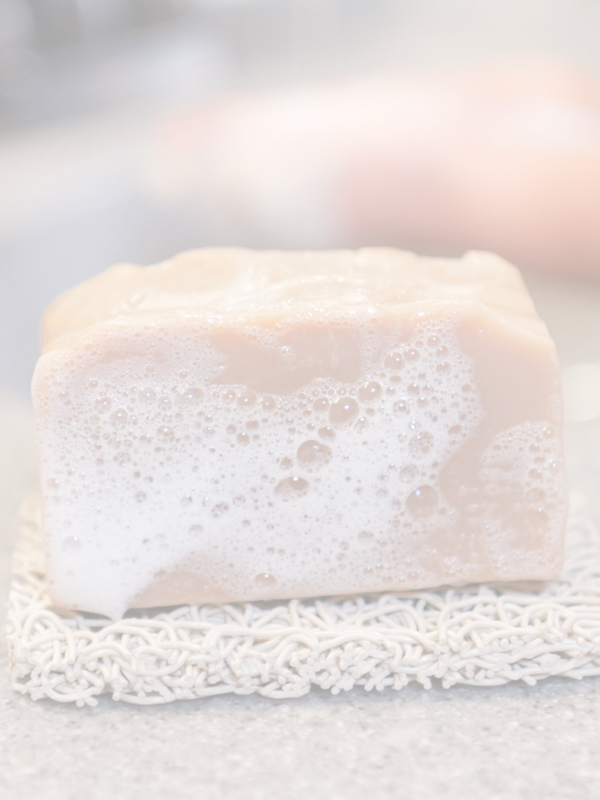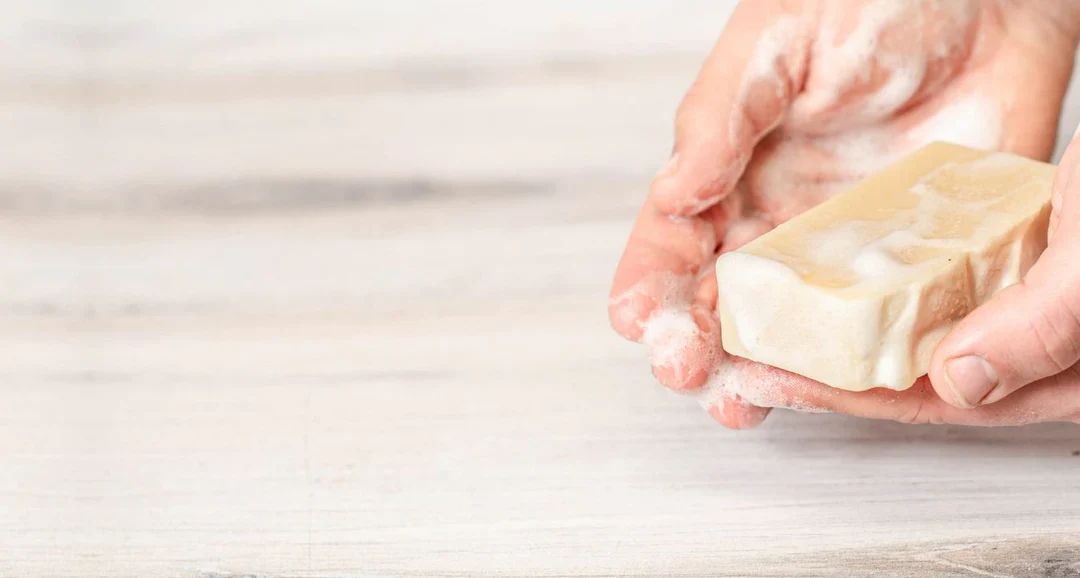Acne Soap
Did you know that goat milk is a natural remedy for acne-prone skin? Goat milk has antibacterial and anti-inflammatory properties, reducing acne symptoms and preventing future breakouts.
Free from the harsh chemicals used in commercial soaps, our natural soaps and lotions are made from a blend of natural properties ideal for acne treatment. Experience the transformative power of goat milk for clearer, healthier skin when you shop with us today.
-

Purity
Goat Milk Soap UnscentedRegular price $6.79Regular priceUnit price / per -

Tea Tree
Goat Milk SoapRegular price $6.79Regular priceUnit price / per -

Activated Bamboo Charcoal
Goat Milk SoapRegular price $7.99Regular priceUnit price / per -

Laundry Standard
Goat Milk Laundry SoapRegular price $12.39Regular priceUnit price / per -

Tea Tree
Large Solid Goat Milk LotionRegular price $17.19Regular priceUnit price / per -

Purity
Goat Milk BathRegular price $14.99Regular priceUnit price / per
Americans Agree These Are The Best Farm-Fresh Products for Soft Skin
250,000+ happy customers can't be wrong!
-
Purity Goat Milk Soap Unscented
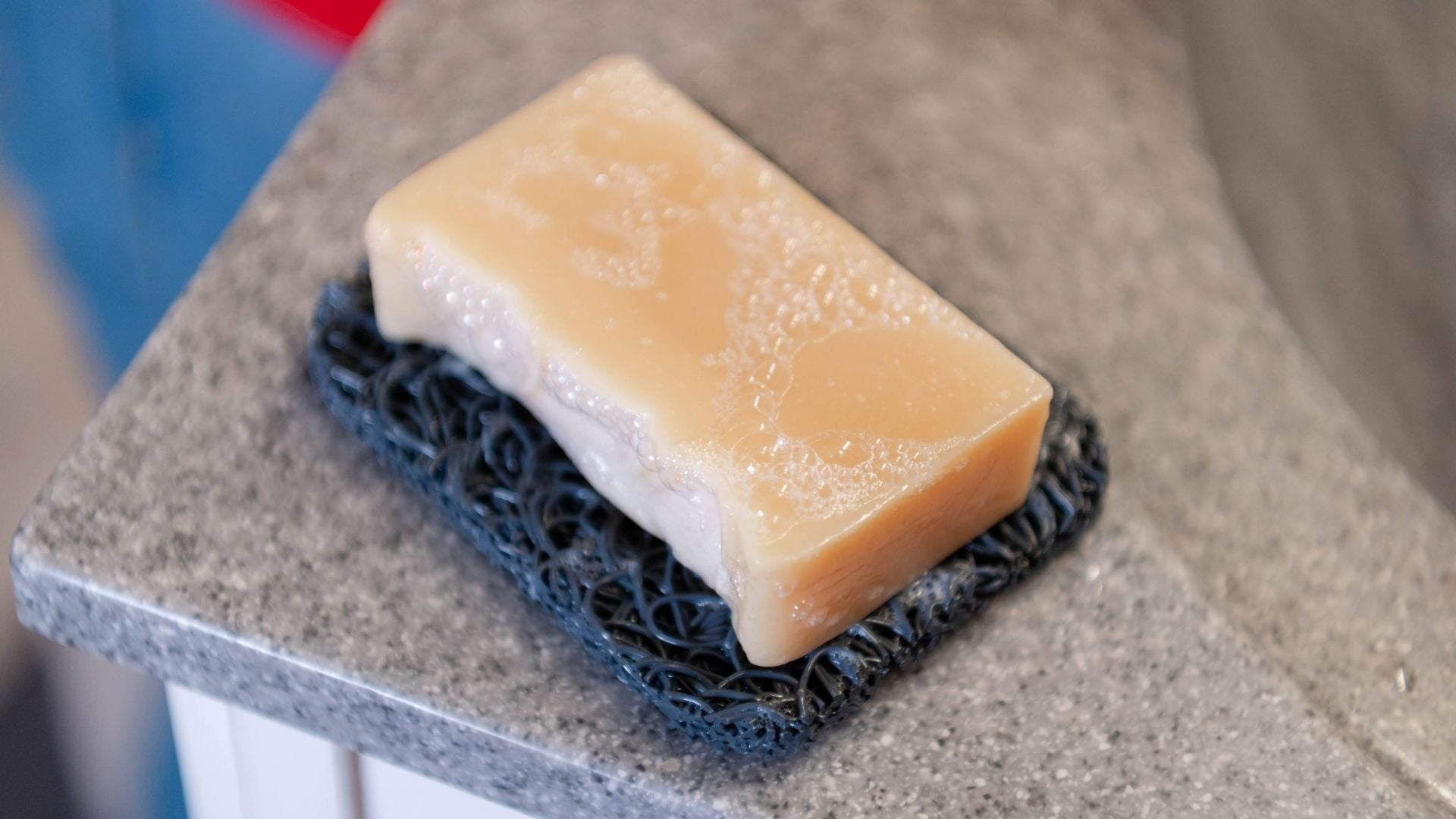
Miracle Soap for My Acne Prone Skin
"I love the Purity soap! Finally a soap that does not dry out my skin. I use it on my face and body with no problem and I have very sensitive skin that is acne prone even at age 63!! I have struggled my whole life trying to find products for my very sensitive, combination/oily, acne prone skin. Now my skin feels "normal"!!! I had to wait 63 years, but miracles happen!"
Lorenza A. ✅ Verified Buyer
Shop Now -
OMH Scrub Limited Goat Milk Soap
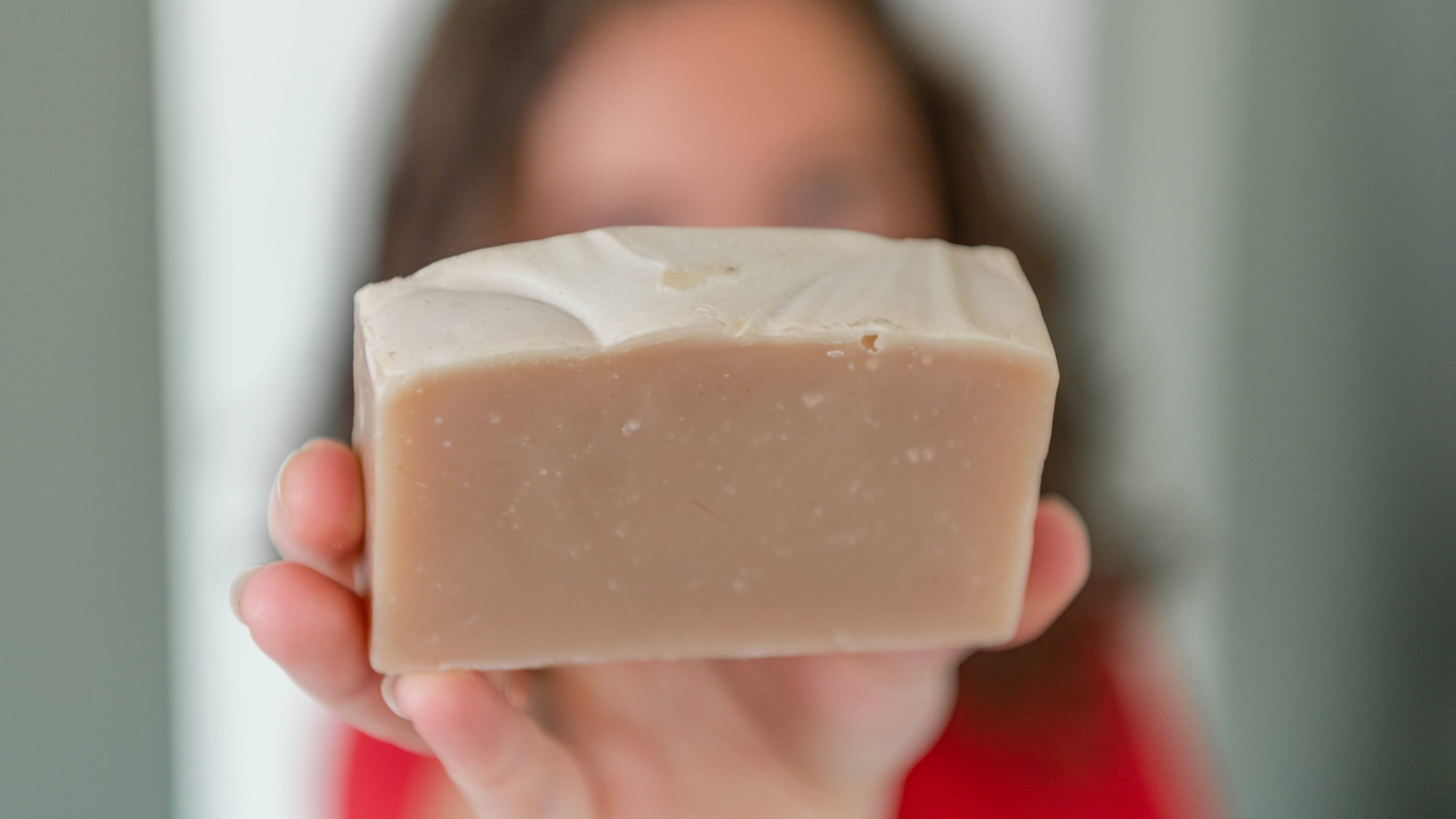
Helps Control Adult Acne
"Nice subtle smell, great for exfoliating! I get breakouts of adult acne occasionally, and the Oatmeal Milk and Honey Scrub does a great job of helping me control it. The oat grains help clean off the toughest dirt after working in the garden, or just getting dirty with the kids. Lathers well, smells great, and the kids in my house love it as well. Another soap added to my list of favorites!"
Jen B. ✅ Verified Buyer
Shop Now -
Activated Bamboo Charcoal Goat Milk Soap
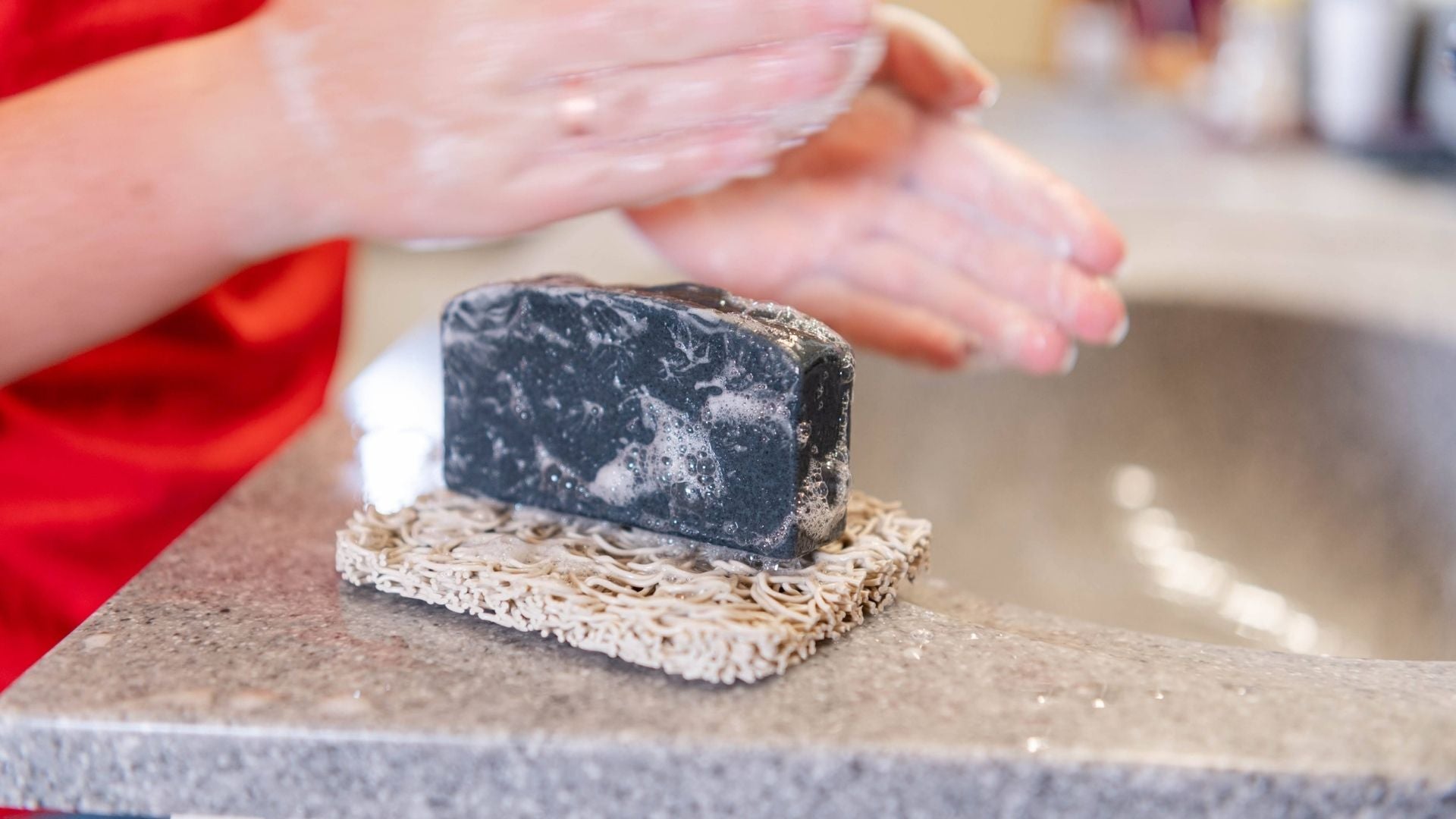
Clears Acne in One Week
"The Activated Bamboo Charcoal soap is excellent! My teen daughters have acne and it has completely cleared up after using this soap exclusively for a week like they recommended. I can't say enough good things about their products! Well worth every penny I spent."
Michelle S. ✅ Verified Buyer
Shop Now -
Tea Tree Goat Milk Soap
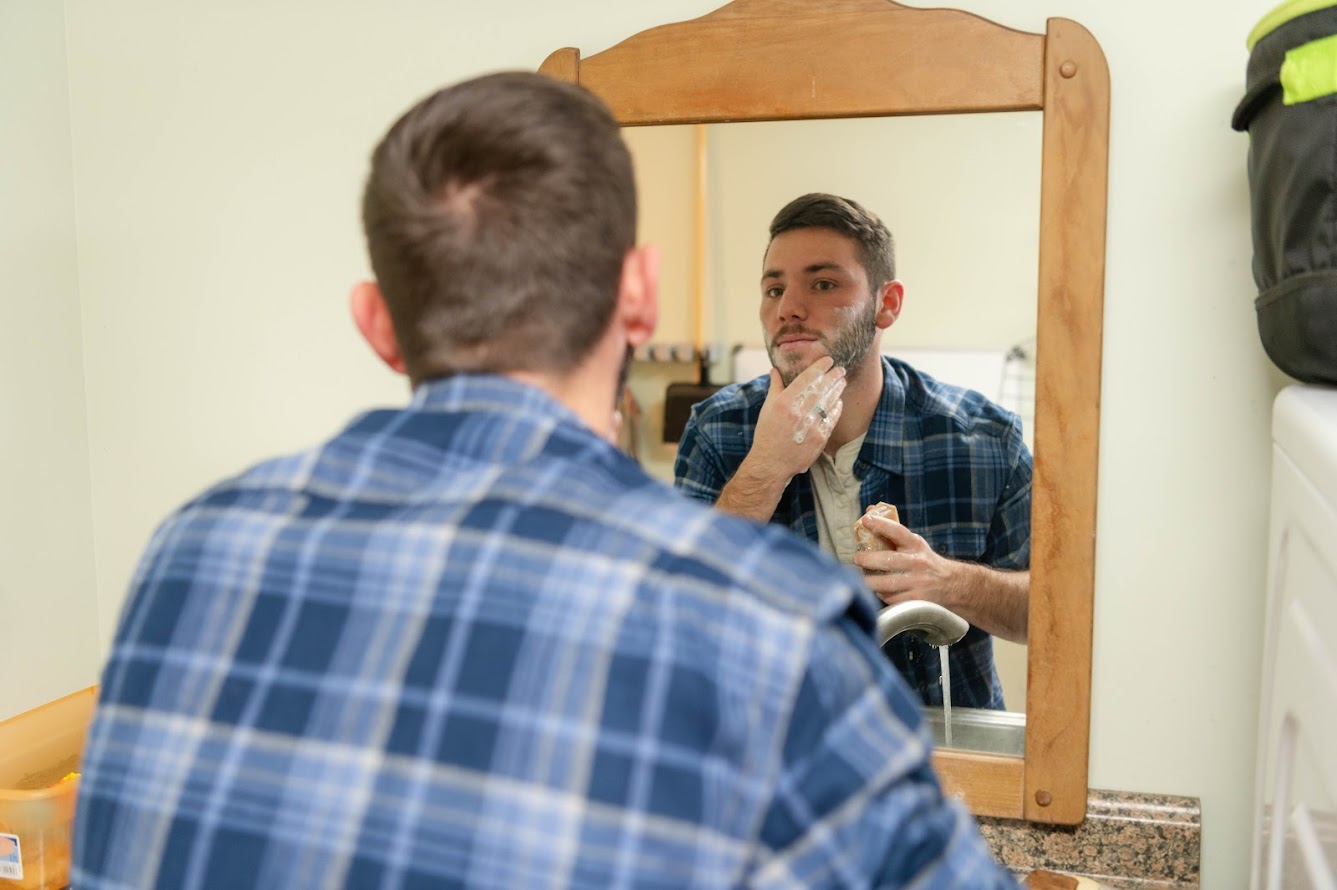
Finally! Acne is Under Control
"I bought the tea tree oil soap on your recommendation for my acne and eczema. My eczema has recently been changed in diagnosis to psoriasis. So as it stands, I'm not 100% certain what it is. But, whatever it is, the tea tree soap is helping immensely!! I love it for my acne, after dealing with acne most of my life, it's finally under control, better than it was with prescription pills from my dermatologist! And my hands haven't looked this clear in years! Thank you!!"
Danielle B. ✅ Verified Buyer
Shop Now -
Purity Goat Milk Soap Unscented
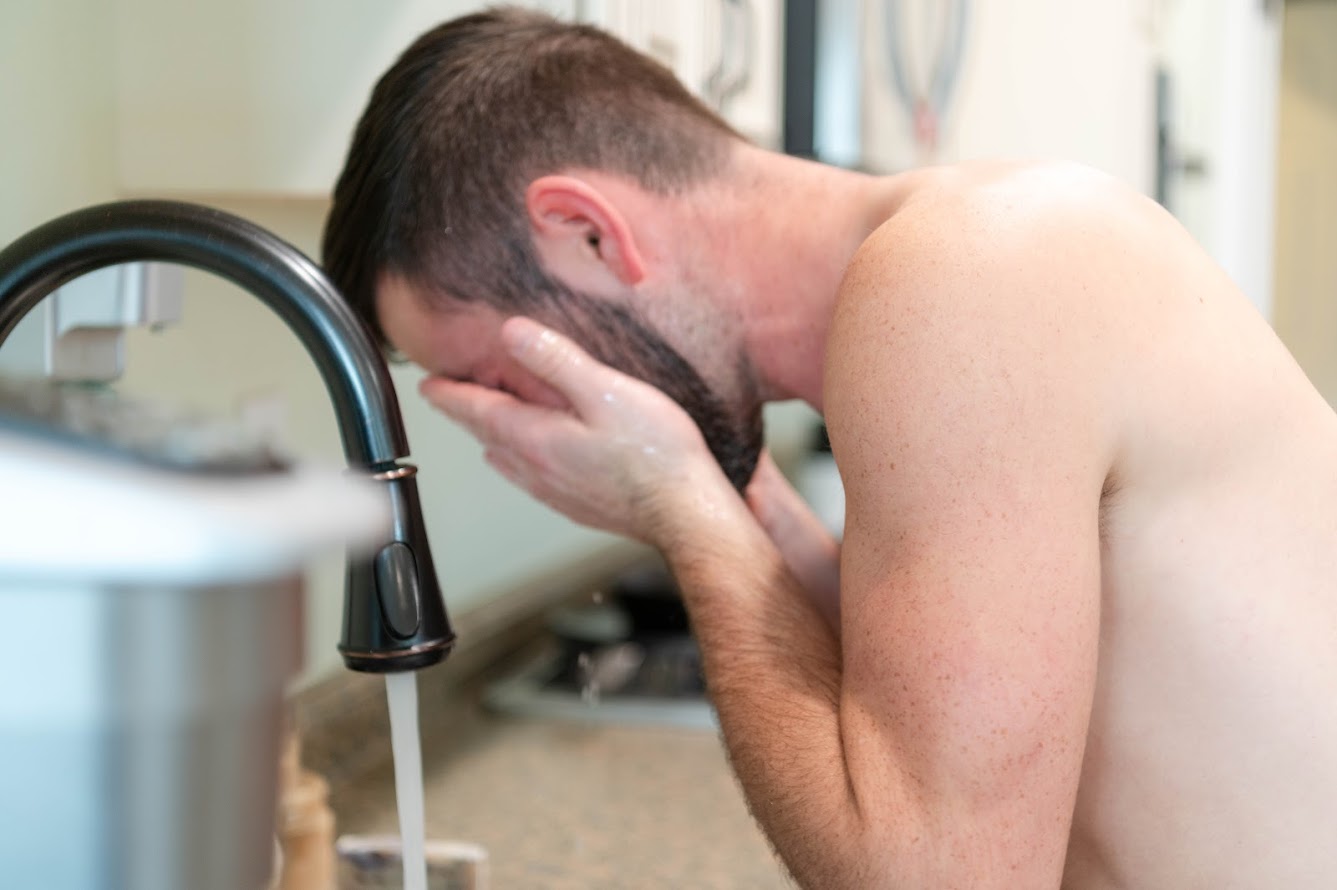
A Game Changer for Adult Acne
"I've just started using Purity soap, but after a week of using only this, I've noticed a huge difference in my skin. I'm 60 but STILL struggle with adult acne (in different forms) and I've seen a positive change in my facial skin. It's only been a week, but I look forward to seeing how much better my entire skin looks and feels. You've found a lifelong customer in me! God Bless!"
Sharon C. ✅ Verified Buyer
Shop Now -
Tea Tree Goat Milk Soap
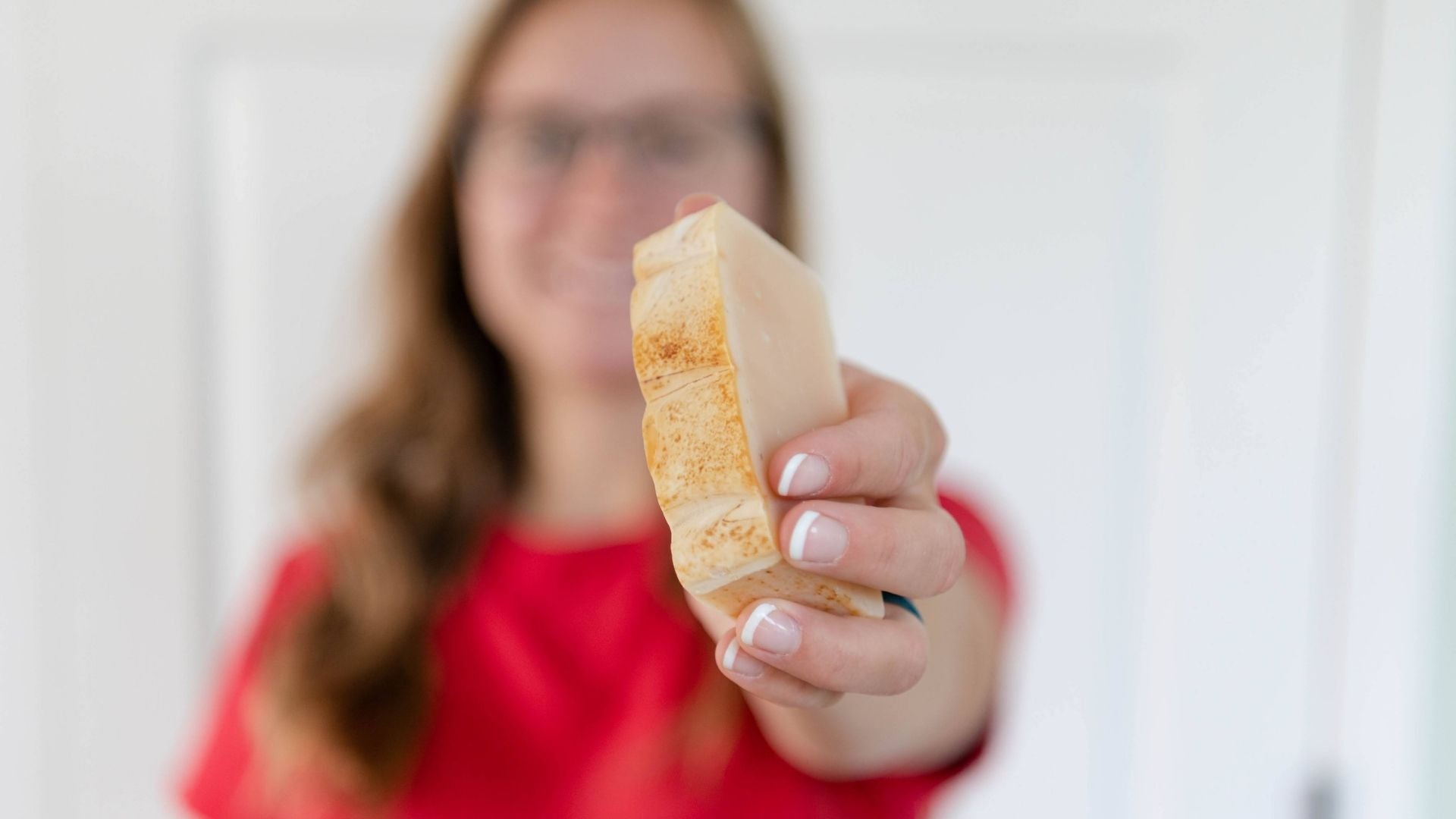
Diminishes Dark Spots Big Time
"I wanted to let you know that I have only been using the tea tree soap for less than a week and I am already seeing a difference in my skin and the blemishes I had. Not only do I seem to have less acne, but the dark spots from them having diminished big time. I hope it continues to work and I look forward to ordering more products!"
Anna L. ✅ Verified Buyer
Shop Now -
Activated Bamboo Charcoal Goat Milk Soap
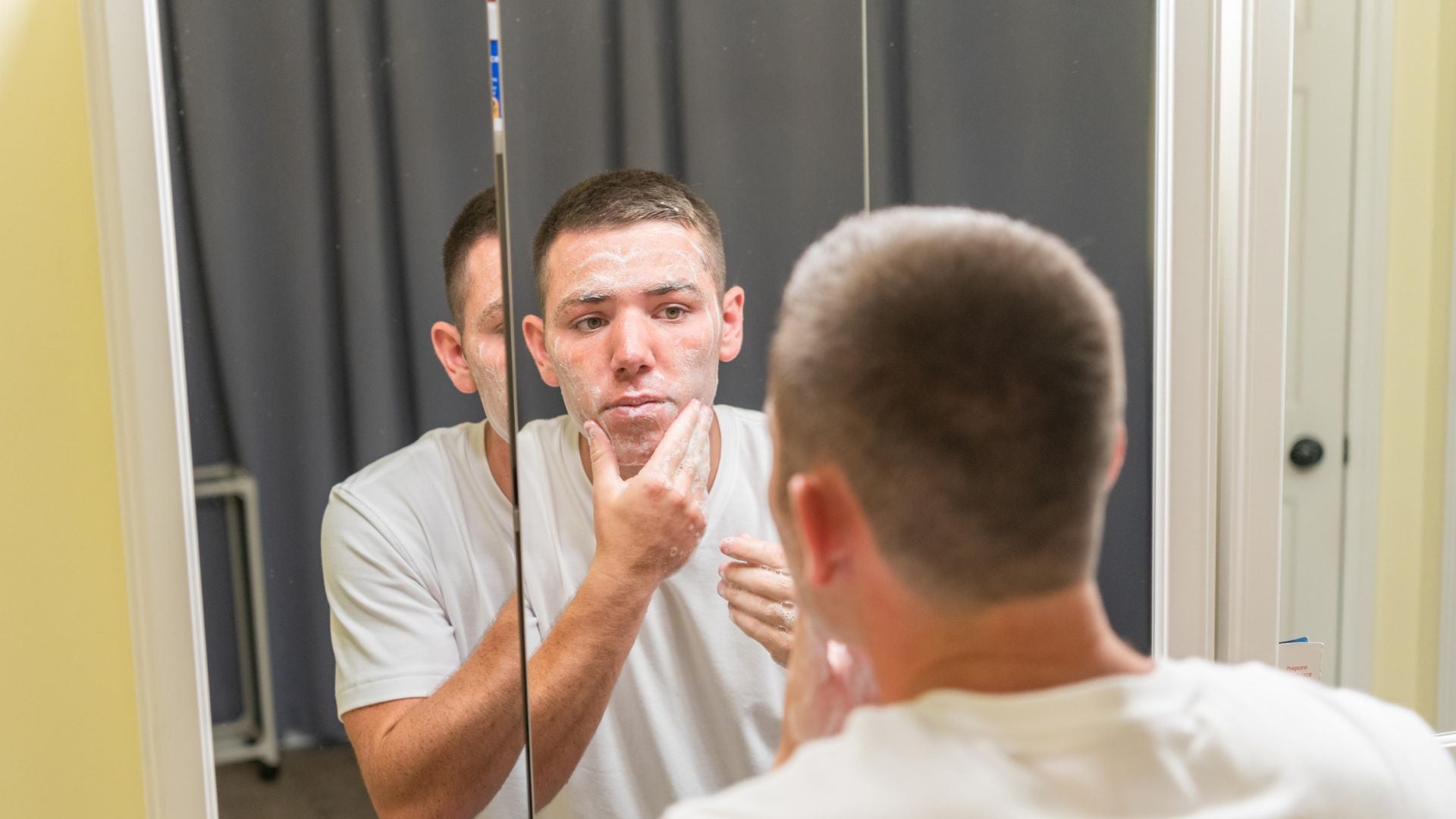
Reduces Acne and Keeps Face Clean
"I got the Activated Bamboo Charcoal soap. It works great to help reduce my acne and also just helps keep my face clean. I love that it is non scented because I have crazy allergies. This is my third time buying from this shop and I will continue to do so."
April M. ✅ Verified Buyer
Shop Now -
Activated Bamboo Charcoal Goat Milk Soap
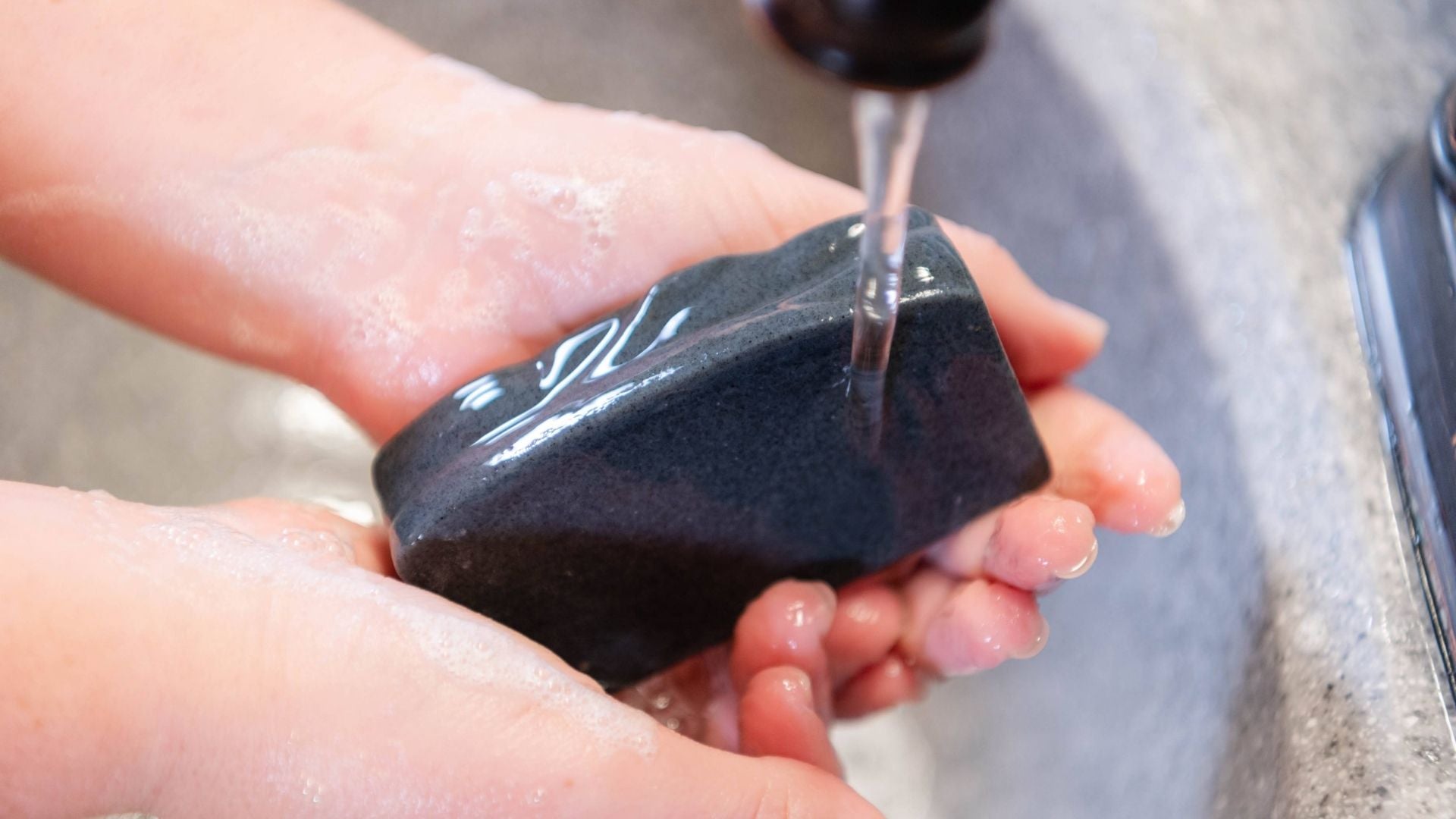
Smaller Pores and Pimples, Even Skin
"I have some skin discoloration and mild hormonal acne. The Bamboo Charcoal soap has made my pores look smaller, and skin more even, and my pimples are slowly getting smaller. This is an excellent product."
Holly N. ✅ Verified Buyer
Shop Now -
Tea Tree Goat Milk Soap
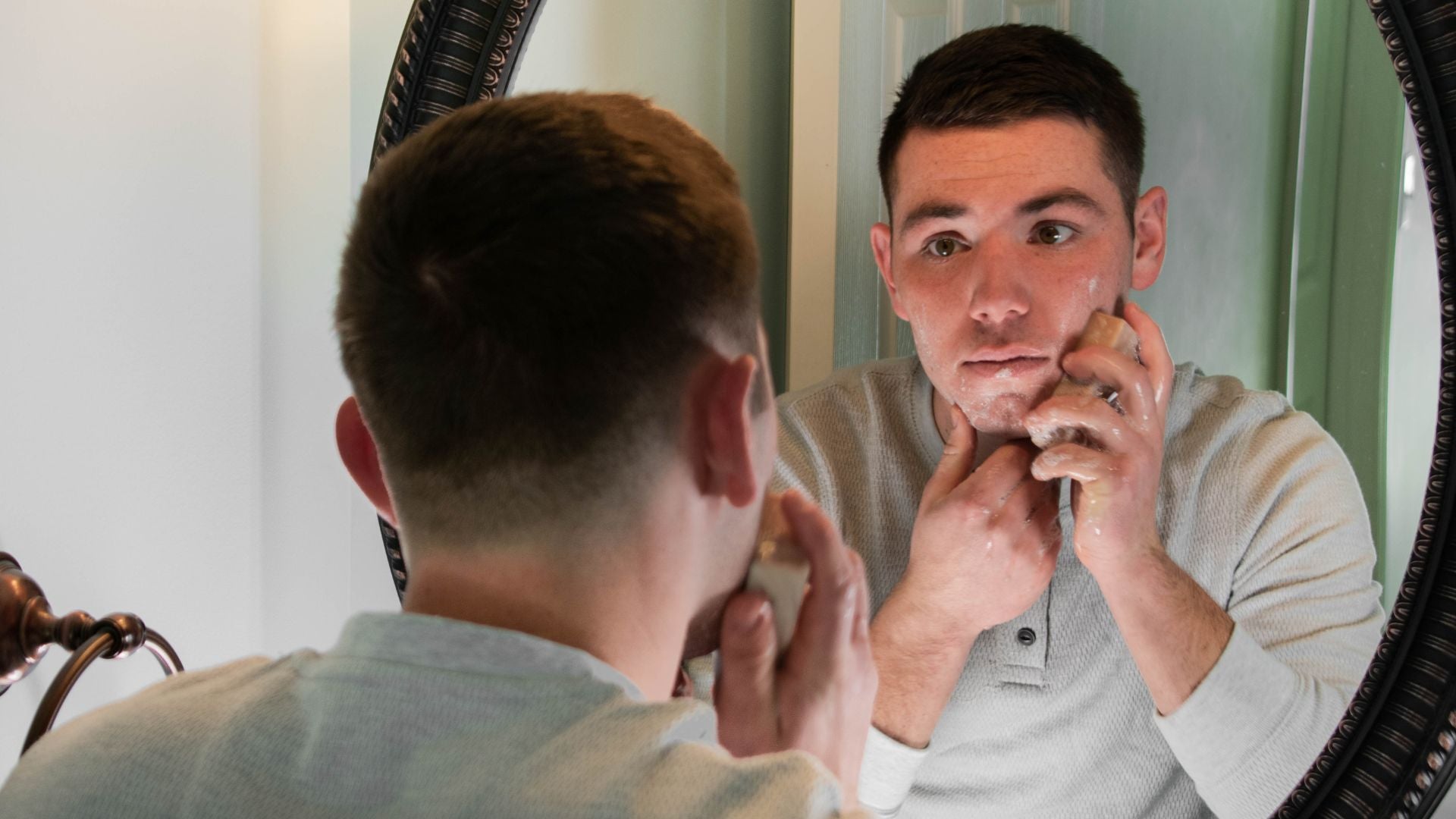
Works Wonders for Mild Acne
"I have adult acne and have noticed that using goat milk soap helps make your pores smaller. This tea tree oil soap also helps control oil. By the end of the day my face would be super shiny and it's helped considerably. I live in TX where you can't help but have an oil problem. It helps with itchy skin too. It dries zits out overnight which is a big help. My little brother is a teenager and has mild acne and I gave him a piece of mine to use and its working."
Danielle N. ✅ Verified Buyer
Shop Now -
Purity Goat Milk Soap Unscented
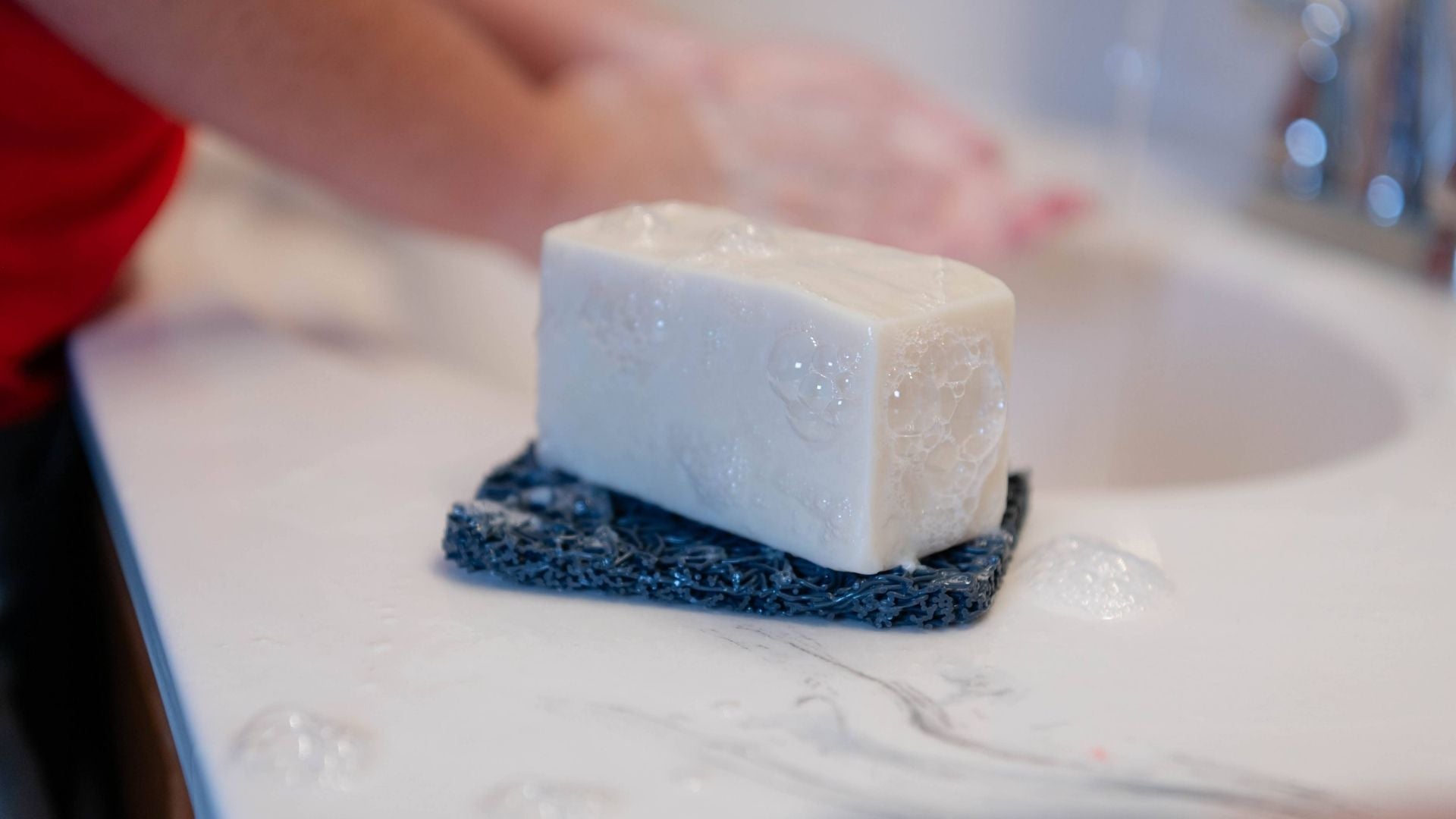
Keeps Face Soft and Anti-Blemished
"As a 28 yr old. I have suffered with acne/scars. My face is very sensitive and dry. I have combination skin. So it's hard to find the right face wash without it harming/irritating my face which led to dry/tight face and more breakouts. I purchased 1 bar of purity soap to give it a shot. After I washed my face, my face was NOT dried or irritated/red. BUT SOFT AND ANTI BLEMISHED."
Brenda T. ✅ Verified Buyer
Shop Now -
Tea Tree Goat Milk Soap
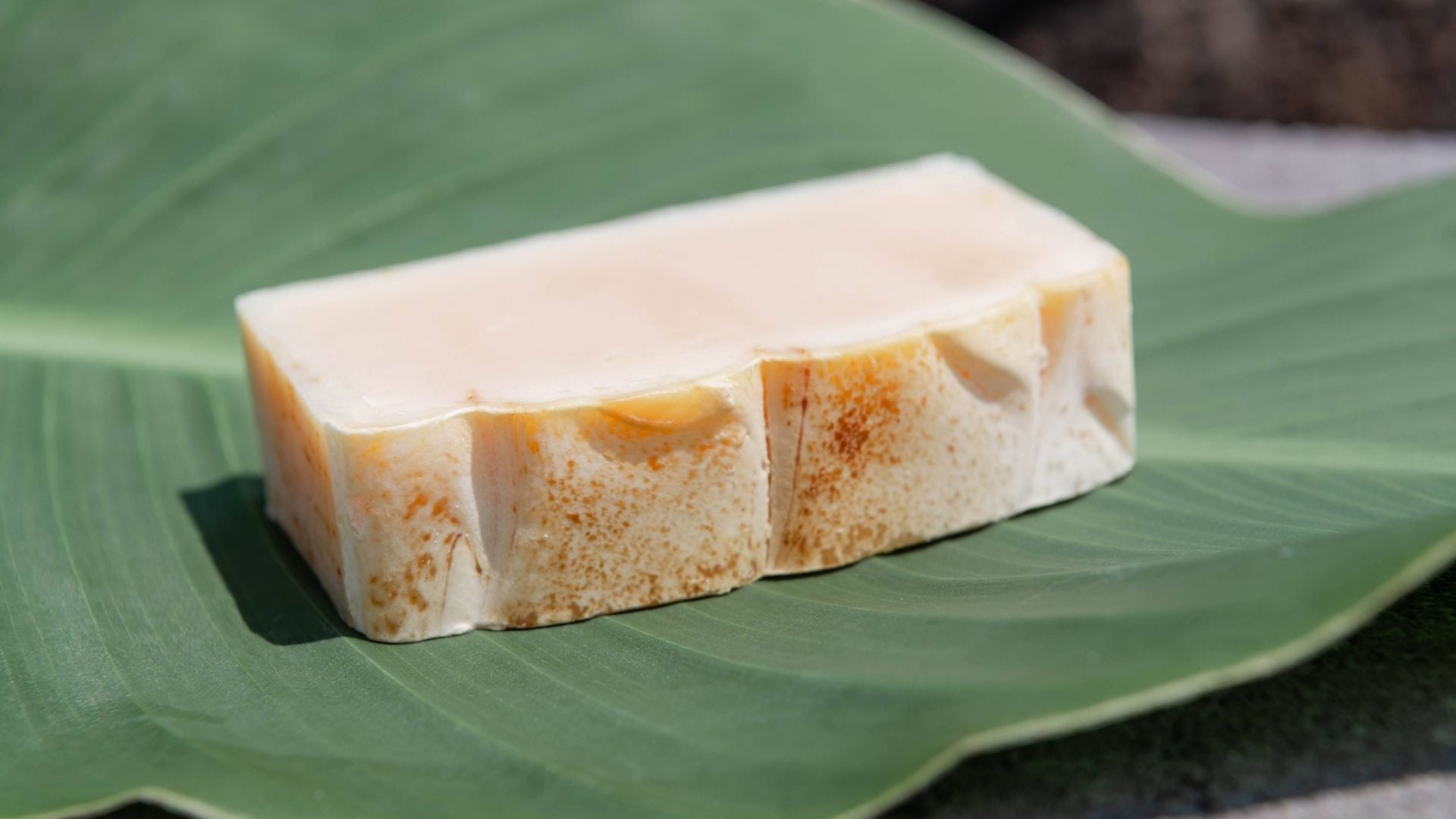
Life Saver Soap for Dermititis
"I have acne prone and combination skin. I suffered from perioral dermatitis and even took antibiotics for it! The antibiotics did nothing so I decided to try Tea Tree goat milk soap. In less than one week of using this soap, both my acne and perioral dermatitis disappeared! This soap is a life saver!"
Alyssia M. ✅ Verified Buyer
Shop Now -
Tea Tree Goat Milk Soap
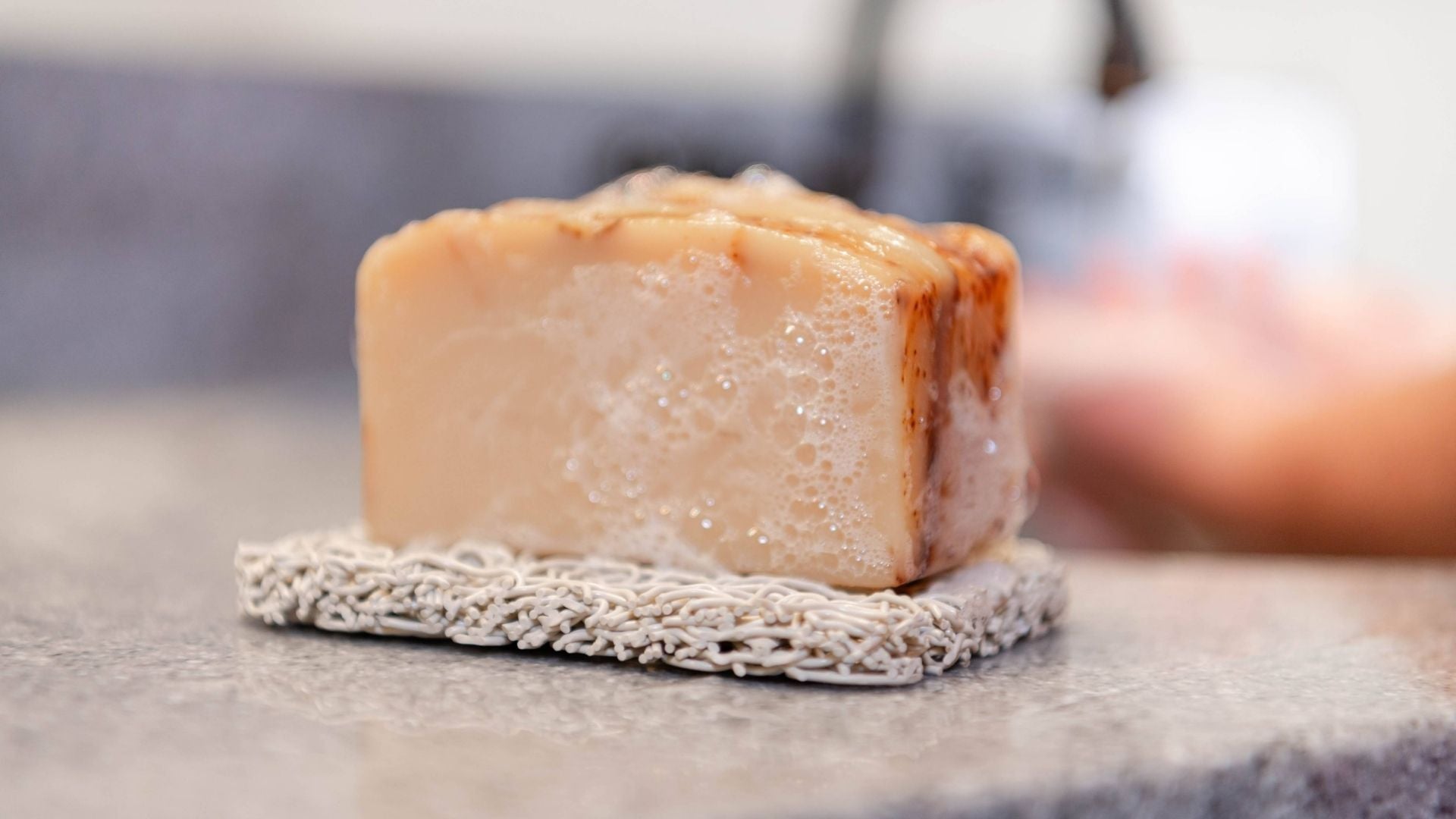
Big Relief on My Cystic Acne
"Tea tree soap was fabulous and a life saver. Due to my PCOS I frequently have cystic acne especially on my back. Such a big relief since its been exfoliating and love the silky feeling on my body. Thanks GMS staff for using only natural ingredients."
Yolanda H. ✅ Verified Buyer
Shop Now -
Tea Tree Goat Milk Soap
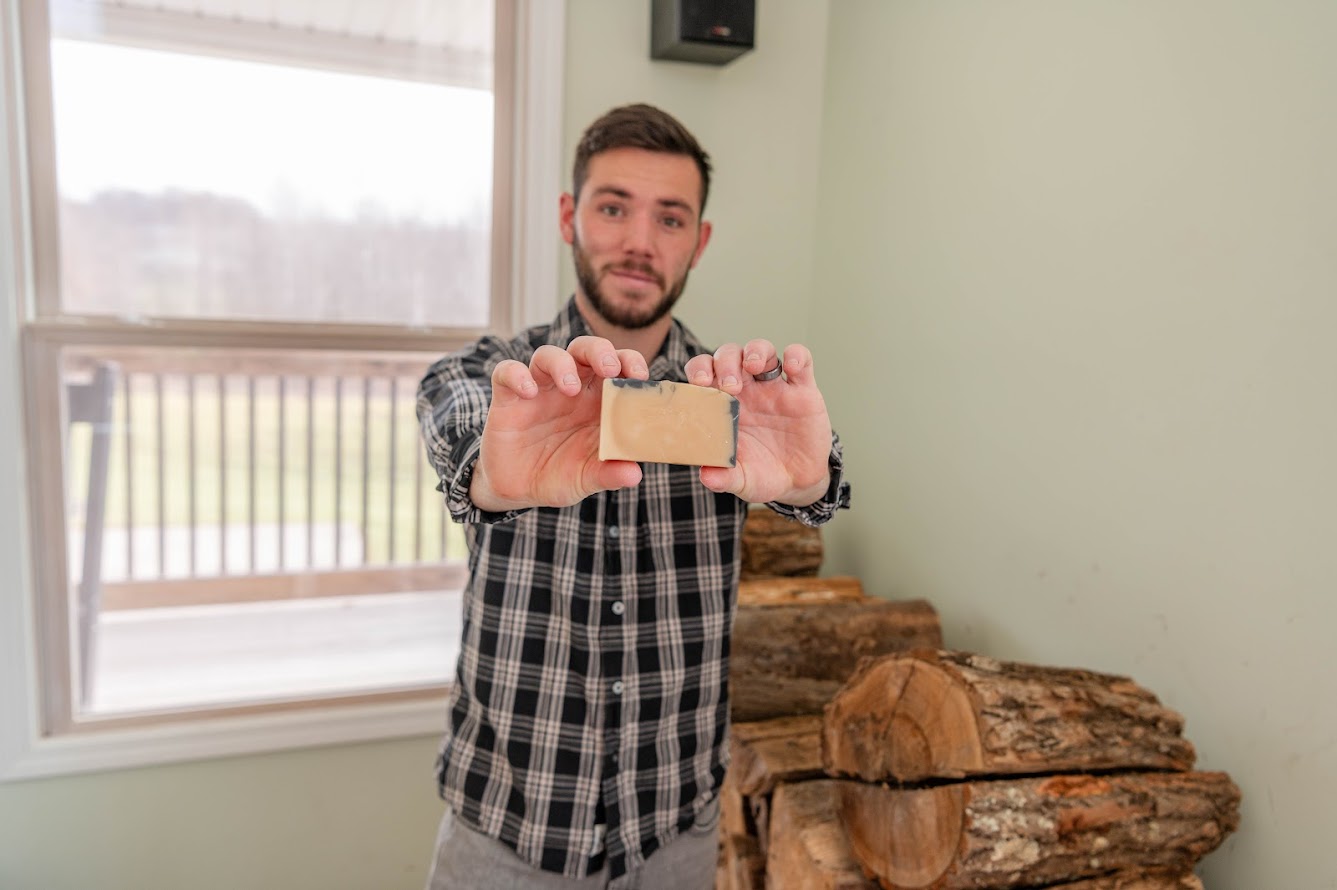
Helps Enormously on My Skin Allergies
"The Tea Tree Soap is an amazing soap for skin allergies and acne. Both my daughter and her boyfriend use the Tree Tea soap for their acne and since has cleared their face significantly. I use the soap for my skin allergies which helps enormously! Don't hesitate to try it."
Charles S. ✅ Verified Buyer
Shop Now -
Calendula Olive Oil Goat Milk Soap
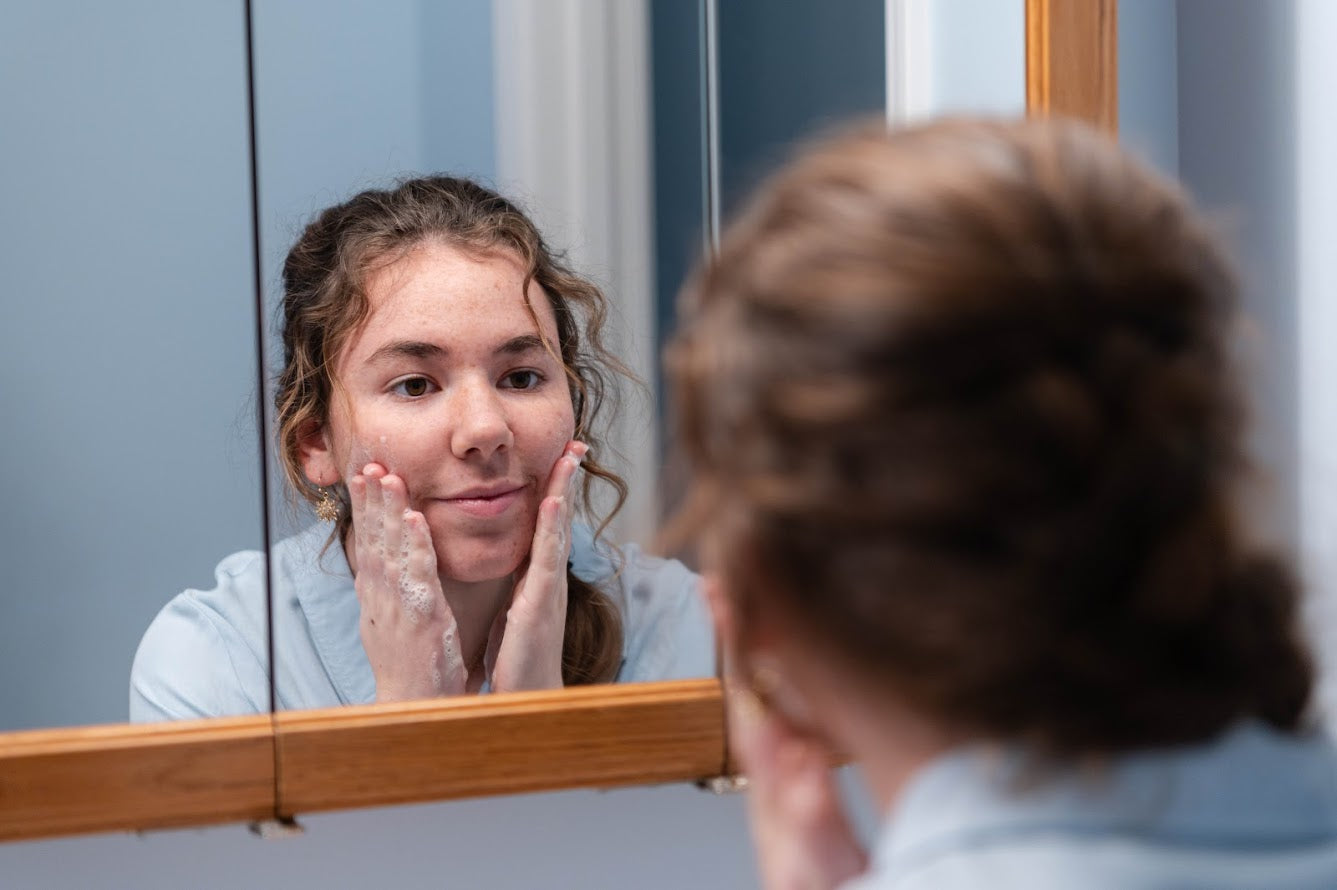
Clear Complexion in Less Than A Week
"I had been buying a three step cleanser kit to fight acne for my 17 year old daughter for the last several years. She nearly panicked when the store stopped carrying the cleanser kit. I ordered a bar of this Calendula soap for her and she loves the way it makes her face feel. It has also helped to clear her complexion in less than a week. Happy teenager = happy mom! We love your soap!"
Cindy S. ✅ Verified Buyer
Shop Now

What are the Benefits of Goat Milk Soap for Acne?
Reduces inflammation and skin redness
Lactic acid has been shown to reduce inflammatory lesionsHelps prevent new acne from forming
Vitamin A in goat milk is a powerful acne fighter.94.3% of people say their acne has improved
In a survey of over 1000 Goat Milk Stuff users.The Goat Milk Soap Difference
Say their skin is healthier since switching to Goat Milk Stuff.
Believe that Goat Milk Stuff has significantly improved the quality of their life.
Enjoy softer skin since starting to use Goat Milk Stuff soaps and lotions.
Results from a Goat Milk Stuff survey with over 1000 responses.
Shop all Goat Milk Stuff
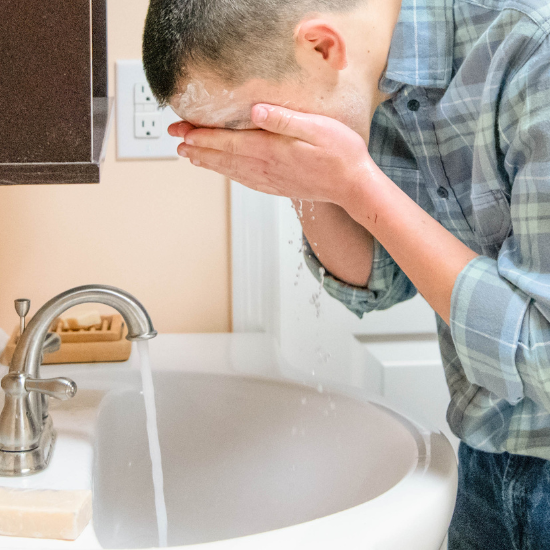
Goat Milk Soap for Acne
Acne is a dermatological skin condition that often leaves people feeling self-conscious about their appearance. Our goat milk soap offers a natural alternative for helping to manage acne and its accompanying symptoms. We offer various products in our Acne collection, which are designed to help soothe inflamed skin and prevent future breakouts with absolutely no harsh chemicals.
Acne produces bumps, redness, and other pus-filled pimples. While many people are embarrassed by this skin condition, you are not alone - over 80% of the American population suffers from Acne. If you or a loved one are living with this skin condition, there’s good news. Our Goat Milk Stuff soaps have been helping to naturally relieve people's acne symptoms for over a decade now.
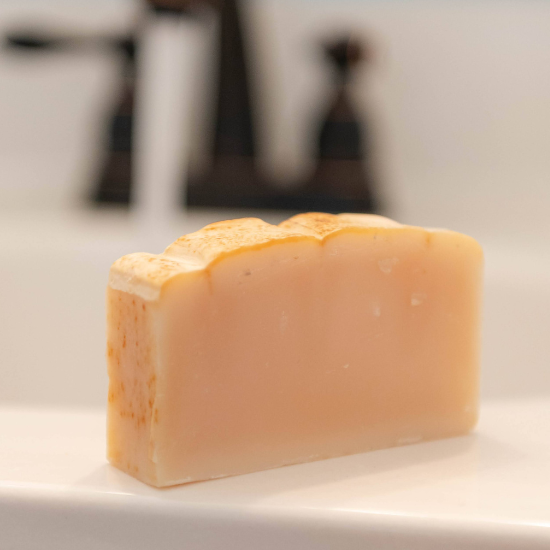
Goat Milk Soaps for Natural Acne Care
Everyone’s skin is different, and so is the best soap for each person. Our goat milk soap offers a natural alternative for helping to manage acne and its accompanying symptoms. We offer various products in our Acne collection, which are designed to help soothe inflamed skin and prevent future breakouts with absolutely no harsh chemicals.
For those looking to alleviate their acne symptoms, we generally recommend starting with our Tea Tree Goat Milk Soap, as the majority of people who have used this product for their acne have reported great results. However, it’s important to keep in mind that each person's skin is unique, so you should try the soaps to see which goat milk soap YOUR skin likes best.
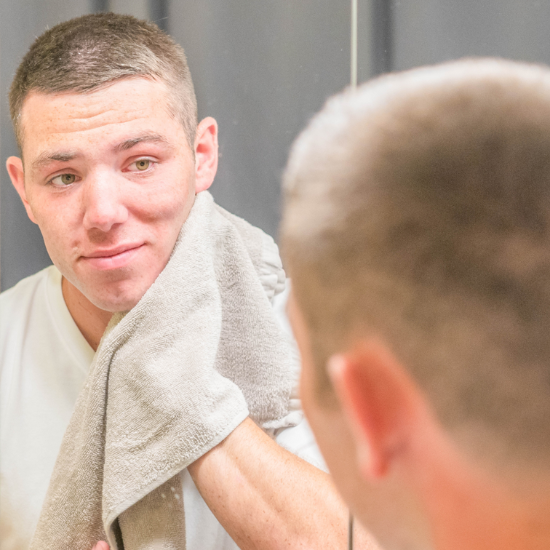
Best Goat Milk Soaps for Acne
Since each person's skin may react differently to different goat milk soaps, you should try the other goat milk soaps at some point as well. These are the five goat milk soaps that we get the best feedback for relief from acne:
- Purity Goat Milk Soap is an unscented soap with simple ingredients and is very gentle for acne-prone skin.
- Tea Tree Goat Milk Soap is our Purity Goat Milk Soap with Tea Tree essential oil added. Tea Tree has antibacterial and antiviral properties, making it ideal for helping to fight off the infections that are typical with acne.
- Castile Goat Milk Soap is the gentlest soap we make and contains only organic extra virgin olive oil and raw goat milk. The creamy, lotion-like lather and minimal ingredients make it the goat milk soap we recommend for infants and hyper-sensitive skin.
- Calendula Goat Milk Soap is our Castile soap with calendula-infused olive oil and castor oil added to increase lather. Castor oil is known for helping with inflammation and fighting off fungi, characteristics that calendula also possess. Calendula is also antibacterial in nature, which may also help with acne.
- Activated Bamboo Charcoal Goat Milk Soap is our Purity goat milk soap with added activated bamboo charcoal. This natural ingredient is gentle on the skin and antibacterial too. If you've never used a charcoal soap before, be sure to test it on a small portion of your skin first, as a small number of people are sensitive to charcoal.
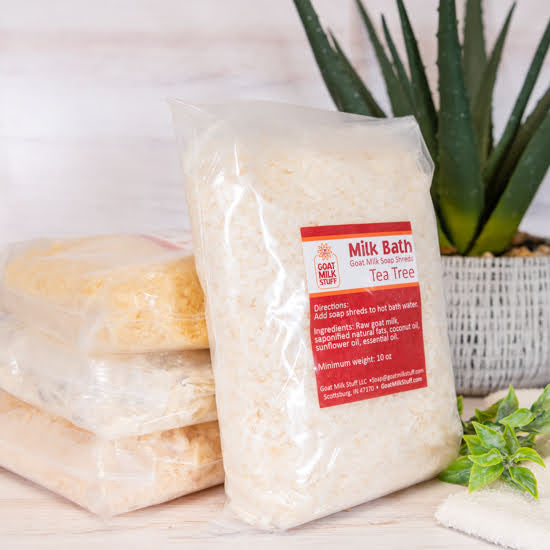
6 Steps To Use Goat Milk Soap For Acne Relief.
If you're looking for relief from your acne, we recommend these steps:
- Remove as many chemicals and detergents from your personal care products as possible. This includes soap, lotion, shampoo, make-up, and deodorant.
- Use the Tea Tree Goat Milk Soap exclusively for at least a week. We have the bar soap for the shower or Tea Tree Goat Milk Bath for enjoying a soak in the tub.
- After a week of exclusively using the Tea Tree Goat Milk Soap, try adding the Tea Tree Solid Lotion to see if it improves your skin. Some people find it helps, and others don’t, so we recommend the soap first and then the lotion. By not trying them both for the first time in the same week, you can see the impact each one has.
- At some point, start washing all your clothes, sheets, and towels, and especially your pillowcases in the Laundry Soap because it completely rinses out of your clothes and doesn't leave behind any chemicals to irritate your skin.
- If your scalp needs some help, consider trying our Goat Milk Soap Shampoo Bar without chemicals that could aggravate your acne.
- After you’ve tried the Tea Tree Goat Milk Soap, you can experiment to see if one of our other goat milk soaps for acne (like the Calendula, Castile, Purity, or Charcoal) works any better. Try each one for at least one week so you can give it a fair test. There are smaller sizes available (see the size comparison chart), so you can save money while you are figuring out which Goat Milk Soap is best for your skin.
People Want to Know...

What is Acne?
Acne: blocked pores from sebum, dead skin, bacteria, causing inflammation, pimples.
What is Acne?
Acne is caused when skin pores become blocked by sebum (an oily lubricating substance), dead skin cells, and bacteria. This leads to infection and inflammation, which can result in whiteheads, blackheads, nodules, cysts, or other types of pimples. It is caused by a variety of factors ranging from hormonal fluctuations to air pollution and stress.

Is goat milk good for acne-prone skin?
Goat milk soap may soothe and clear acne-prone skin effectively.
Is goat milk good for acne-prone skin?
Yes, goat milk soap can be a gentle and effective option for acne-prone skin. Packed with natural nutrients like lactic acid, vitamins, and minerals, goat milk soap helps exfoliate dead skin cells, unclog pores, and maintain skin hydration without stripping natural oils. Its creamy texture soothes irritation and reduces inflammation, while the natural antibacterial properties may help combat acne-causing bacteria.
Many users report clearer, smoother skin after incorporating goat milk soap into their routine. Try our specially formulated acne-targeted goat milk soaps to experience the benefits for yourself!

What causes acne to get worse?
Hormones, diet, stress, comedogenic products, medications, environment, friction, genetics worsen acne.
What causes acne to get worse?
Several factors can aggravate acne. These include:
- Hormonal Changes: Fluctuations during puberty, menstruation, pregnancy, or menopause can increase oil production, clogging pores.
- Diet: High-glycemic foods, dairy, or processed sugars may trigger inflammation and excess sebum production.
- Stress: Elevated cortisol levels can stimulate oil glands, leading to more breakouts.
- Skincare Products: Comedogenic (pore-clogging) cosmetics or harsh ingredients can irritate skin and exacerbate acne.
- Medications: Certain drugs, like corticosteroids or lithium, may worsen acne as a side effect.
- Environmental Factors: Humidity, pollution, or sweat can trap bacteria and oil in pores.
- Friction or Pressure: Touching your face, tight clothing, or helmets can aggravate acne (acne mechanica).
- Genetics: A family history of acne can increase susceptibility.
- Poor Skincare Habits: Infrequent cleansing or not removing makeup can lead to clogged pores.

Is acne a lifelong disease?
Acne may be lifelong or temporary, depending on skin type, factors.
Is acne a lifelong disease?
For some people, acne may be a lifelong condition that requires ongoing treatment and care. For others, it may be a temporary condition that resolves on its own or with treatment. Unfortunately, it is hard to determine which yours will be, as this will depend on your skin type and the above-mentioned factors.

Does goat milk soap cause breakouts?
Goat milk soap typically doesn't cause breakouts; lactic acid exfoliates, unclogs pores.
Does goat milk soap cause breakouts?
As long as you don't have any ingredient allergies, natural goat milk products, like our soaps, do not cause breakouts or clog pores. In fact, our goat milk soaps contain lactic acid, which is a naturally occurring exfoliant that helps to break down dead skin cells, leaving healthy new ones behind.

How long does it take for goat milk soap to help clear acne?
Goat milk soap may show acne improvement in days to 6 weeks.
How long does it take for goat milk soap to help clear acne?
There is no definitive answer to this question, unfortunately. The amount of time it takes for goat milk soap to help clear up acne, or make a noticeable difference, will vary from person to person. Generally, we recommend using it for at least 6 weeks; however, some customers have reported improvements within a few days of using our Goat Milk Stuff products.

Should I moisturize at night if I have acne?
Yes, moisturize at night to hydrate, repair, and protect acne-prone skin.
Should I moisturize at night if I have acne?
Using a moisturizer at night can benefit acne-prone skin, as the skin repairs itself during sleep. A moisturizer can help to hydrate and nourish the skin and can also help to improve the skin's barrier function, which can make it less susceptible to irritation and infection.

How often should I use goat milk soap for acne, and when will I see results?
Use goat milk soap twice daily; results may appear in 1-6 weeks.
How often should I use goat milk soap for acne, and when will I see results?
For acne-prone skin, we recommend using goat milk soap twice daily—morning and evening—as part of a gentle cleansing routine. Results vary depending on your skin type and acne severity, but many users notice reduced redness and smoother skin within 1-2 weeks of consistent use. For best results, pair the soap with a healthy skincare regimen and give it 4-6 weeks to see significant improvements in acne. Start with our gentle goat milk soap formulas designed for acne-prone skin today!
